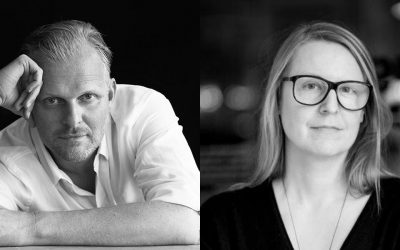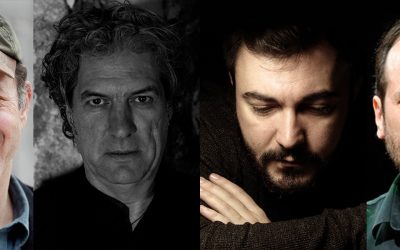Reinhold Friedl + Gerriet K. Sharma + Verena Lercher + Denzel Russell
Bringing disciplines together. Getting out of the comfort zone.
In this conversation, we will be looking at the conditions, applications and limitations of multidisciplinarity in contemporary knowledge production and cultural innovation. There has been much debate about this term over the last 20 years in the world of art, craft and science, in connection with all kinds of economic forces. Almost every attempt at “progressivism” gives the feeling that it must be conceived around this ominous notion.
It seems to hold the key to a different kind of knowledge, something society urgently needed and needs, a distinguished atmosphere of pleasant learning, mutual understanding, teaching, and more creative forms of production. The acclaimed emerging mindset of our time is grounded in this field of shared techniques, experiences and emotions.




Thus, for many cultural entrepreneurs, innovation lies entirely in this ongoing process, while, at the same time, we observe the rapid unbridled dissolution of social structures through the loss of their basic conditions, such as solidarity and empathy, and the unrestricted growth and promotion of the ego that is posited as “individuality”.
It’s a matter of fact: good music has been multidisciplinary for hundreds of years and has been the joint product of musicians, instrument makers, composers, scientists and society. Historically, it has not been a process of smooth transitions and collective happiness as such. Furthermore, many of the “new” or “groundbreaking” works caused scandal, disbelief, or severe rejection, and involved “creative people,” as some would later call them, stepping out of their comfort zone.
In this sense, the conditions and effects of this field of “multidisciplinarity” may be very different from what we proclaim as a mantra: may it be unhealthy, may it be disruptive and unpredictable, and may it hurt? We can only investigate the implications of this contemporary master keyword by asking those who practice it about their experiences, strategies, experiments and fear of losing.
Reinhold Friedl, musician and composer.
Verena Lercher, actress.
Gerriet K. Sharma, sound artist and composer.
Denzel Russell, artist.
Reinhold Friedl
Reinhold Friedl studied piano with Renate Werner and Paul Schwarz in Stuttgart, with Alexander von Schlippenbach and Alan Marks in Berlin, and he studied composition with Mario Bertoncini (Nuova Consonanza) and Witold Szalonek. He has collaborated with musicians such as Phill Niblock, Elliott Sharp, Alvin Lucier, Keiji Haino, Lou Reed, Carsten Nicolai and Laurie Anderson, and has released over fifty CDs.
In addition to his work as a composer and leader of Zeitkratzer – the world-renowned new music group – Reinhold Friedl is known for his passionate and unrivalled piano performances. He has invented several techniques for playing a grand piano directly on the strings, which he has dubbed inside piano. In the words of The Wire Magazine London, “Reinhold Friedl has developed his inside piano technique to such a level of delicacy and precision that the tones coming out from the instrument bear little resemblance to their acoustic source.” According to Phosphor Magazine, ”it’s incredible that one can create such sounds with a grand piano!”, while Australian Realtime stated: “Tremendous power. Overwhelming!”. Reinhold Friedl lives between Berlin and Vienna.
Verena Lercher
With extensive experience in theatre, she has created and performed, since 2016, her own pieces in collaboration with different artists and institutions, such as media artist Anja Behrens (Denmark), sound artist and composer Gerriet K. Sharma (Germany) and techno musician and games designer SØS Gunver Ryberg (Switzerland), among others. Her artistic work is oriented on the exploration of performance and installation techniques at the sensual interface of the (synthetic) voice, the body and new media and on research on autopoetic systems in performance and writing using neural networks (artificial intelligence).
Gerriet K. Sharma
A sound artist and composer, Gerriet K. Sharma specialises in electronic music and composition with sculptural sound phenomena in computer music. He has organised and curated cycles of concerts of electroacoustic music, algorithmic composition, radio art and performance. He has performed, exhibited and carried out numerous activities at festivals, cultural centres and institutions in Austria, Germany, New York, Zagreb and more. He is currently working on a book on spatial practices in sound and music, new compositions, virtual reality exhibitions and a series of conferences.
Denzel Russell
Denzel Russell has a degree in Fine Arts (NY) with a specialisation in glassblowing and electronic arts. His work is an attempt to learn what different tools and methods are possible and can best be described as a diary of observation through sculpture. Using light and sound qualities of various media, he creates works that are an evaluative extension of the cultural and socio-political spheres he inhabits.



























